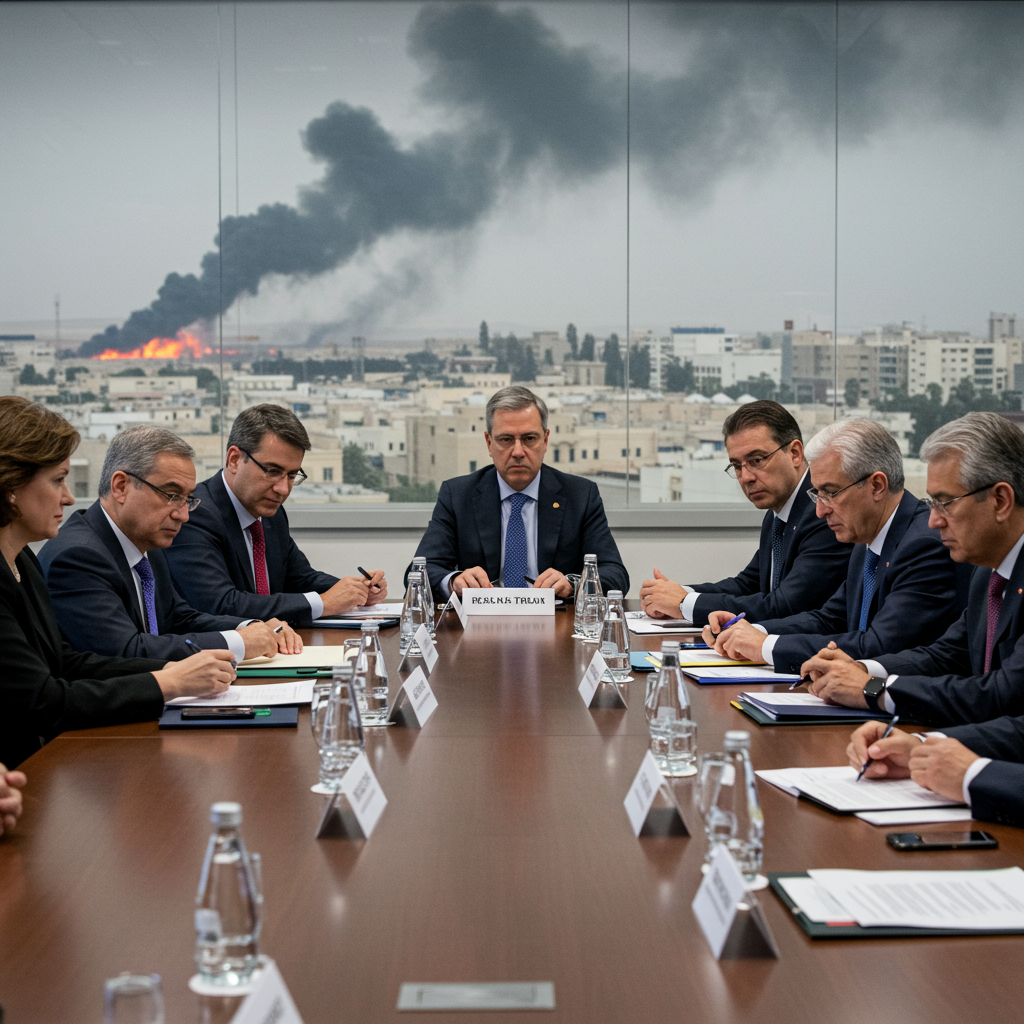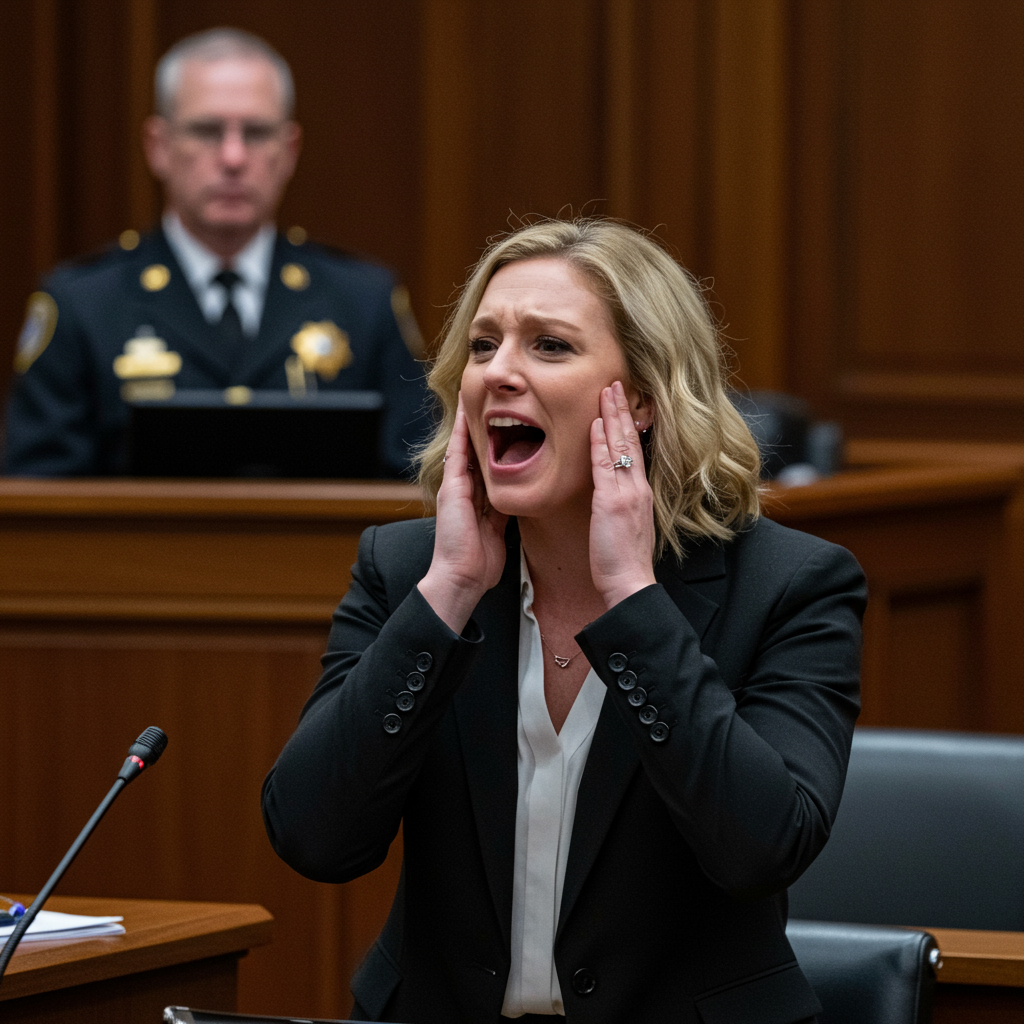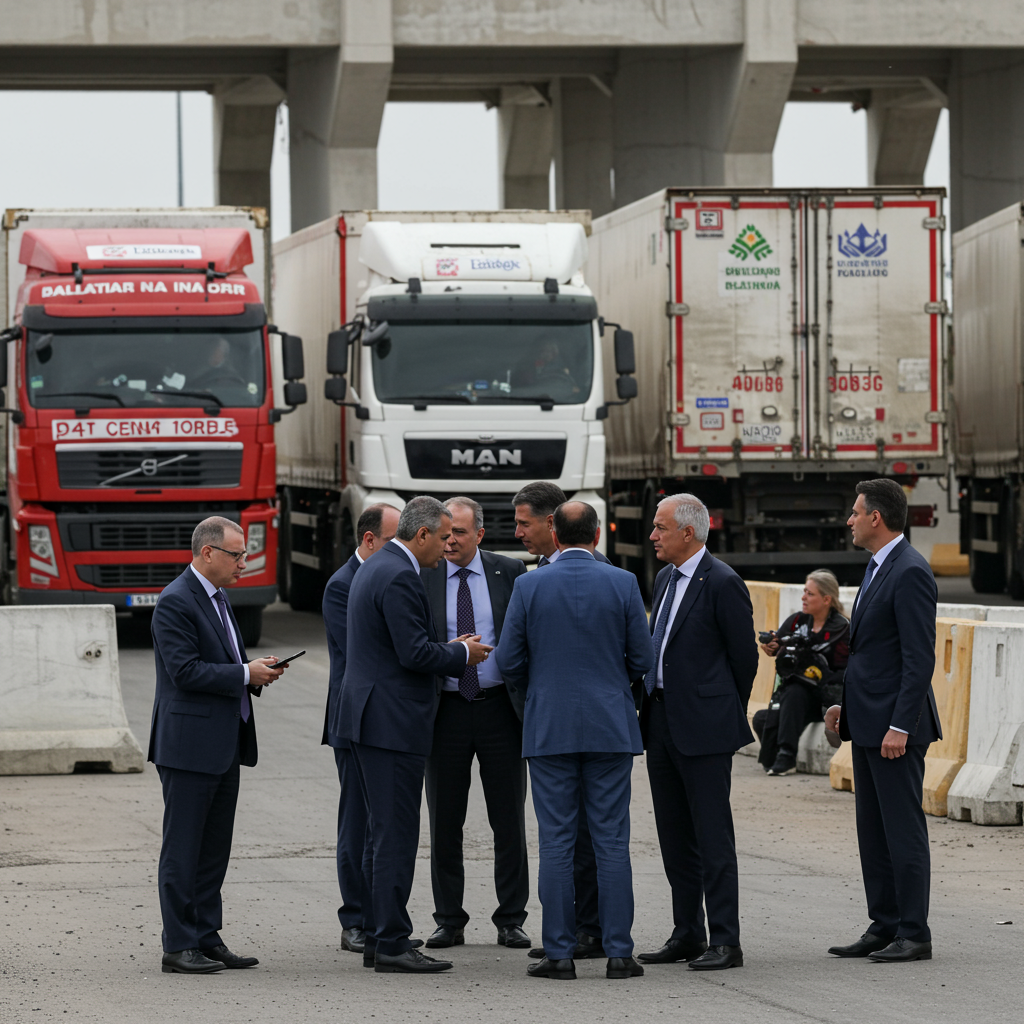Diplomacy Ramps Up Amid Israel-Iran Conflict
Amid escalating military conflict between Israel and Iran, international diplomats are urgently ramping up efforts to revive stalled nuclear negotiations with Tehran. The push comes as tensions threaten to ignite a wider regional war, with concerns mounting over Iran’s nuclear program and potential military involvement by the United States.
The flurry of diplomatic activity aims to find a peaceful resolution to the crisis, which began approximately a week ago with an Israeli offensive against Iran. The situation is compounded by statements from figures like U.S. President Trump, who indicated the U.S. could join the conflict to support Israel.
Key Diplomatic Efforts Underway
In a significant development, foreign ministers from the UK, France, and Germany (the E3) met with Iran’s Foreign Minister Abbas Araghchi in Geneva. Sources indicate this was the most substantial known diplomatic engagement between Western powers and Tehran since the current conflict began.
Following the meeting, the E3 ministers – Jean-Noël Barrot (France), David Lammy (UK), and Johann Wadephul (Germany) – issued a joint statement calling for de-escalation and expressing grave concern over Iran’s nuclear activities. Their urgent goal, they stated, is to secure a negotiated solution to ensure Iran “never obtains or acquires a nuclear weapon.” The European diplomats signaled their willingness to continue these critical talks, though Germany’s Wadephul specified Berlin is open to discussions if Tehran shows “serious willingness” on nuclear and missile programs, including renouncing enrichment for weaponization and reducing its missile program.
Concurrently, the crisis was a key focus at the United Nations Security Council in New York, a session requested by Iran. UN Secretary-General António Guterres warned that without immediate action, the conflict could become an “uncontrollable fire,” urging a return to diplomacy. Rafael Grossi, head of the International Atomic Energy Agency (IAEA), echoed this, telling the council that a diplomatic solution remains viable and the IAEA’s safeguards system can verify Iran does not develop nuclear weapons. However, reports citing independent experts suggest Iran has already enriched sufficient uranium for multiple nuclear devices, a claim Iran denies, maintaining its program is purely for peaceful purposes.
Players State Positions Amidst Tensions
The different parties involved hold varying stances on the path forward:
Iran: Foreign Minister Araghchi presented Tehran’s perspective, asserting that Israel’s offensive began “in the midst of an ongoing diplomatic process,” claiming a “promising agreement” with the U.S. was being crafted and a meeting planned for June 15. Araghchi stated Iran resists negotiating under duress while “the Zionist regime’s aggression” continues, accusing the U.S. of complicity and referencing President Trump’s social media comments.
United States: The U.S. position adds complexity. President Trump announced he would decide by early July – within roughly two weeks – whether the U.S. will conduct a military strike against Iran. He noted the difficulty in halting the conflict while Israel appears militarily successful. While initial statements from the White House seemed to cool speculation on direct US military aid for Israel’s offensive, reports suggest Israel believes it can target sites like the fortified Fordo facility alone, though U.S. assistance would be quicker. Experts caution that even powerful bombs might not fully eliminate Iran’s future nuclear know-how. U.S. Ambassador Dorothy Shea voiced administration support for Israel’s actions targeting Iran’s nuclear ambitions, attributing the current crisis to Iran’s refusal of a previous deal.
- Israel: Meanwhile, Israel remains skeptical of the diplomatic track. Israel’s U.N. Ambassador Danny Danon questioned the effectiveness of decades of talks, stating Israel would only consider negotiations if there was a “genuine effort to dismantle the [nuclear arm] capabilities of Iran,” dismissing the Geneva meeting as potentially unproductive debate.
- www.knkx.org
- www.iowapublicradio.org
- www.knkx.org
Fighting Continues Alongside Talks
Despite diplomatic maneuvers, fighting persists on the ground. Israel reported striking dozens of Iranian military targets around Tehran and western Iran. In response, Iran has launched missiles, one hitting a residential building in Beersheba, injuring five, and another striking Soroka Medical Center the previous day. Casualty figures remain disputed, with reports from the Israeli prime minister’s office indicating at least 24 killed in Israel by Iranian strikes, while Iran’s Health Ministry reported over 200 killed by Israeli strikes, and non-governmental sources citing even higher figures for Iran.
The push for nuclear diplomacy highlights the international community’s urgent desire to de-escalate the situation and prevent the conflict from spiraling further, particularly given the potential implications for Iran’s nuclear capabilities. The success of these efforts remains uncertain as long as military actions continue and the fundamental demands of the involved parties remain far apart.



